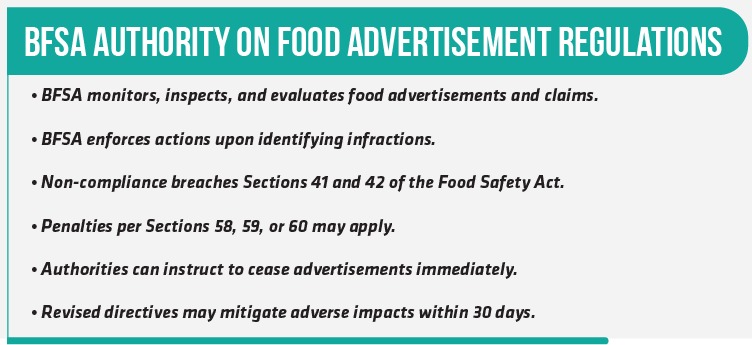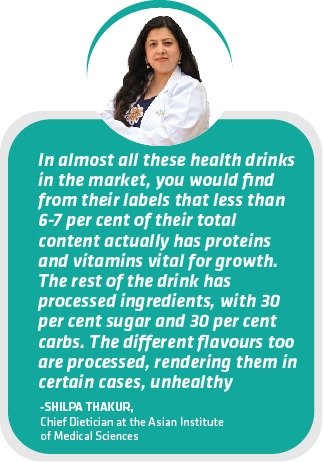Key Highlights:
- According to the new draft regulations, food advertisements and claims must be truthful, accurate, clear, and not misleading.
- Failure to comply with any regulation outlined will constitute a breach of Sections 41 and 42 of the Food Safety Act and may incur penalties as stipulated in Sections 58, 59, or 60 of the Act, as per the draft.
- Clear and distinct images, symbols, and labels should be used to avoid confusion with other brands or products.
Ethics serves as the guiding principle for business conduct, holding substantial importance in advertising practices. However, there is a noticeable surge in unethical advertising practices not only in Bangladesh but also in other countries including India where many multinationals, global, and local companies resort to misleading tactics, particularly in the food sector, to boost immediate product sales.
A review meeting concerning the draft ‘Food Safety (Advertisement and Claims) Regulations, 2024’ took place at the Bangladesh Food Safety Authority (BFSA) headquarters in Dhaka on Monday, February 12th. The draft regulations, which are based on the Food Safety Act, lay down the guidelines and standards for food advertisements and claims.
As the apex organization, the BFSA maintains oversight to ensure food safety and quality across Bangladesh. It was established in 2015 under the Food Safety Act, with the mandate to formulate and enforce food safety standards and regulations, coordinate and monitor food safety activities, and raise public awareness and education on food safety issues. The BFSA is committed to safeguarding the health and well-being of the people, and to achieving the vision of ‘Safe Food for All’.
BFSA also appealed to the consumers to be aware and vigilant about the food advertisements and claims and to report any violation or complaint to the BFSA. Upon careful review of feedback and suggestions from stakeholders and the public, the draft regulations will soon be finalized and implemented.
New Rules for Food Ads in Draft Regulations

According to the draft regulations, food advertisements and claims must be truthful, accurate, clear, and not misleading. They must also comply with the relevant laws and regulations of the country, and respect the religious and political sentiments, non-communal spirits, social, cultural, and moral values of the people.
The draft regulations prohibit any food advertisements and claims that:
- Avoid hurting community sentiments, using indecent language, or claiming food items as ‘best’ in promotions.
- Refrain from making false, exaggerated, or unscientific claims about food quality, composition, origin, or health benefits.
- Use clear and distinct images, symbols, and labels to avoid confusion with other brands or products.
- Obtain explicit consent before implying endorsement or approval from any authority or organization.
- Provide substantiated evidence before suggesting suitability for specific age groups, genders, occupations, or medical conditions.
With the authority vested in it, the BFSA can monitor, inspect, and evaluate food advertisements and claims, and enforce appropriate actions upon identifying any infractions. Failure to comply with any regulation outlined herein will constitute a breach of Sections 41 and 42 of the Food Safety Act and may incur penalties as stipulated in Sections 58, 59, or 60 of the Act, as per the draft.
Should any advertisement be published in contravention of these regulations, the competent authorities shall instruct the relevant food business operator or advertiser to cease the advertisement immediately. Within the subsequent 30 days, revised advertising directives may be provided to mitigate any adverse impacts of the advertisement within the same medium of publication, as outlined in the draft.
19 Legal Battles and 38 Showdowns with Big Brands Over Misleading Claims in India

India’s Food Safety and Standards Authority (FSSAI) pursued legal proceedings in 19 cases under the Food Safety and Standards (FSS) Act, following complaints against the products. It also inspected many products for making dishonest claims – and started proceedings in 38 cases involving prominent brands.

FSSAI also gave a show-cause notice to McDonald’s for disparaging freshly cooked food and vegetables in its advertisements to support fast food.
The food sector watchdog delivered a show-cause notice to Hardcastle Restaurants and Connaught Plaza Restaurants Ltd – the franchise that operates McDonald’s fastfood chain in India.

Conclusion
In a world where consumer trust is paramount, the battleground for ethical advertising intensifies. As we witness the proliferation of misleading claims and unethical practices, the call for stringent regulations grows louder. In our pursuit of ‘Safe Food for All’, it’s crucial to acknowledge that ethical advertising goes beyond regulatory compliance—it’s a cornerstone that braces the bond of trust between businesses and consumers.


